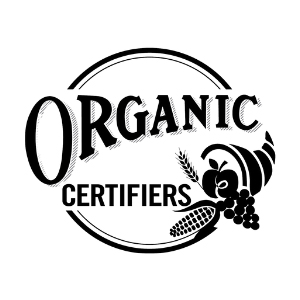CHOOSING THE RIGHT SKIN CARE FOR YOU

Navigating the vast sea of skincare products available today can feel overwhelming, even for the most seasoned beauty enthusiasts. With an endless array of ingredients, claims, and brands, finding the right skincare routine that aligns with your specific needs, preferences, and skin type is crucial for achieving the radiant, healthy skin we all desire.
This guide is designed to demystify the process of selecting skincare products, offering clear, concise advice on making informed choices that cater to your unique skin concerns. Whether you’re battling dryness, oiliness, sensitivity, or seeking anti-aging solutions, understanding how to choose the right skincare products is the first step toward unlocking your skin’s fullest potential. Embrace the journey to discovering skincare that not only enhances your natural beauty but also supports your skin’s health in the long term.
Identifying Your Skin Type: The Foundation of Effective Skincare
Understanding your skin type is the cornerstone of any successful skincare regimen. The primary skin types are generally categorized as normal, dry, oily, combination, and sensitive. Each type has distinct characteristics and requires different care to maintain balance and health.
Normal Skin: This skin type has a balanced sebum production, presenting neither too oily nor too dry. The complexion is usually clear, and the pores are barely visible. For normal skin, maintaining moisture and protection against environmental factors is key.
Dry Skin: Characterized by a lack of moisture in the epidermis, dry skin can feel tight and may exhibit flakiness or rough patches. Hydrating ingredients and rich moisturizers are essential for restoring the skin’s moisture barrier.
Oily Skin: Oily skin types produce excess sebum, leading to a shiny complexion and visible pores. Lightweight, non-comedogenic products can help manage oil production without clogging pores.
Combination Skin: This skin type features a mix of oily and dry areas, typically with oiliness in the T-zone (forehead, nose, and chin) and dryness on the cheeks. Tailoring products to address the different needs of each area is crucial.
Sensitive Skin: Sensitive skin reacts easily to irritants, causing redness, itching, or rashes. Gentle, fragrance-free products with soothing ingredients are best for minimizing irritation.
Identifying your skin type allows you to choose products that cater specifically to your skin’s needs, laying the groundwork for a healthy, glowing complexion.
Ingredients Matter: Key Components to Look for Based on Your Skin Concerns
Selecting skincare products with the right ingredients for your skin concerns is vital for achieving your desired results. Here’s a brief guide to key ingredients for various skin issues:
Hydration: For dry skin, look for ingredients like hyaluronic acid, glycerin, and squalane, which draw moisture into the skin and lock it in for long-lasting hydration.
Oil Control: If you’re battling oily skin, seek out ingredients such as salicylic acid, niacinamide, and clay. These help regulate sebum production, minimize pores, and prevent breakouts.
Anti-Aging: For signs of aging, ingredients like retinol, peptides, and antioxidants (vitamin C, E) can stimulate collagen production, fight free radicals, and improve skin texture and tone.
Brightening: To address dullness or hyperpigmentation, ingredients such as vitamin C, kojic acid, and alpha arbutin can help even out skin tone and enhance radiance.
Sensitivity: For sensitive skin, soothing ingredients like aloe vera, chamomile, and centella asiatica can help calm irritation and reduce redness.
Understanding the function of these key ingredients allows you to tailor your skincare routine to your specific concerns, ensuring that you’re not only nourishing your skin but also addressing any issues head-on for a healthier, more radiant complexion.
The Role of Skin pH in Choosing Your Skincare Products
The Role of Skin pH in Choosing Your Skincare Products
The pH level of your skin plays a pivotal role in maintaining its health, integrity, and appearance. Skin pH, which stands on a scale from 1 to 14, measures how acidic or alkaline your skin is. A healthy skin pH typically hovers around 4.7 to 5.75, slightly acidic, which helps to protect against harmful microbes and preserve the skin’s natural barrier. Disturbances in skin pH can lead to various skin issues, such as dryness, irritation, and increased susceptibility to infection.
When selecting skincare products, it’s crucial to consider their pH levels and how they might affect your skin’s natural balance. Products with a pH too far from your skin’s natural pH can disrupt the skin barrier, leading to the concerns mentioned above. For example, traditional soap, often alkaline with a pH level of 9 or above, can strip the skin of its natural oils, leaving it dry and vulnerable. Conversely, acidic products, such as some exfoliants, can help maintain or restore the skin’s acidity but may irritate if too low in pH or used too frequently.
To maintain optimal skin health, opt for products designed to match or slightly lower than the natural pH of your skin. Look for cleansers, moisturizers, and toners that specify they are “pH-balanced” to ensure they are formulated to support and not disrupt your skin’s natural protective barrier. Understanding the importance of pH can lead to better product choices, resulting in healthier, more resilient skin.
Navigating Skincare Trends: What Works and What to Skip
The skincare industry is ever-evolving, with new trends and ingredients popping up regularly. While it’s exciting to explore these innovations, not every trend will be suitable for every skin type or concern. Discerning which skincare trends to embrace and which to bypass can save you time, money, and potential skin woes.
What Works:
Evidence-Based Ingredients: Trends based on ingredients with solid scientific backing, like retinoids for aging, niacinamide for barrier repair, and hyaluronic acid for hydration, are worth considering. These ingredients have been studied extensively and have proven benefits.
Personalization: Trends that focus on personalized skincare, whether through custom formulations or products tailored to specific skin concerns, can offer more effective solutions than one-size-fits-all products.
Sustainable Skincare: The shift towards eco-friendly packaging, ethically sourced ingredients, and cruelty-free practices is a trend with lasting positive impacts, both on the skin and the environment.
What to Skip:
Over-Exfoliation: The trend of daily exfoliation, whether physical or chemical, can damage the skin barrier, leading to irritation and sensitivity. Moderation is key.
DIY Skincare: Homemade skincare recipes are popular on social media but can often do more harm than good, as they may not be pH-balanced or can introduce bacteria to the skin.
Miracle Cures: Be wary of trends promising overnight transformations. Skincare is a long-term commitment, and products that sound too good to be true usually are.
By staying informed and critical of skincare trends, you can navigate the vast landscape of options with a clear focus on what truly benefits your skin’s health and beauty. Prioritize trends that align with scientific evidence and your personal skincare needs for the best results.
Share:
More Posts

ORGANIC OR NOT? CHECK THE LABEL
Organic certification for skin care products is not just a fancy sticker on the packaging; it’s a rigorous process that ensures the product meets strict standards for organic farming, processing, and handling. These standards vary by country and certifying body but generally include criteria like the absence of synthetic pesticides, fertilizers, and genetically modified organisms (GMOs). For a product to be deemed organic, a significant percentage of its ingredients must be grown and processed under these organic conditions.

BEST KOREAN ORGANIC MAKEUP BRANDS
In this guide, we delve into the world of Korean organic makeup, exploring brands that stand out for their dedication to purity, performance, and sustainability. Whether you’re a seasoned K-beauty enthusiast or new to the realm of organic cosmetics, our curated selection promises to introduce you to the best in the market, ensuring your beauty routine is as kind to your skin as it is to the planet.





